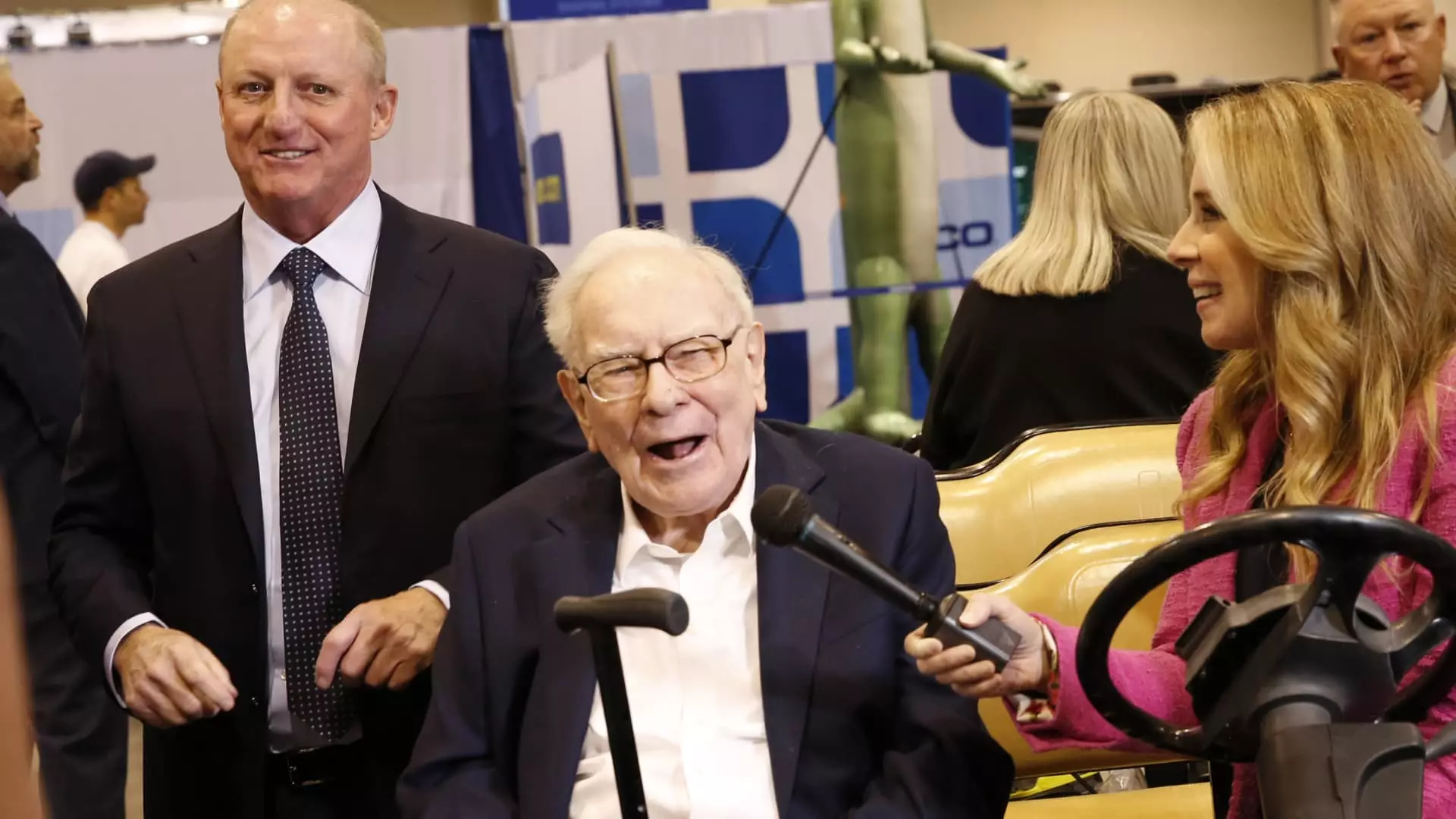Warren Buffett’s impending exit from the CEO position at Berkshire Hathaway marks not just a personal transition, but a seismic shift in the investment landscape. After an impressive 60-year tenure, his decision to step down by year-end introduces a complex blend of anxiety and anticipation among investors. While Buffett will remain on as chairman, the steering wheel will pass to Greg Abel. For many, this change invokes questions of stability, continuity, and the future trajectory of Berkshire. To say the least, Buffett’s legacy casts a long shadow, and now investors grapple with the overwhelming task of recalibrating their strategies in a post-Buffett era.
Proven Performance: The Numbers Tell the Story
Looking at Berkshire’s performance under Buffett’s stewardship is a study in extraordinary returns versus the broader market. Since taking the helm of what was then a failing textile firm in 1965, the company’s stock has surged an astounding 5,502,284% by the end of 2024. In stark contrast, the S&P 500 has delivered a more modest 39,054% during the same timeframe. This disparity is not incidental; Buffett’s decisions have yielded a compounded annual return of 19.9%, nearly doubling the S&P’s 10.4% over the decades.
Such impressive returns don’t just suggest a successful investment philosophy; they create an almost cult-like reverence for Buffett among value investors. When discussing market performance, it’s increasingly evident that fervor can be financially gratifying, but it can also warp perceptions. With Buffett’s retirement, we may begin to see whether reverence translates to real-world investing lessons or mere nostalgia for better days.
An Uncertain Future: Will Successors Measure Up?
While Greg Abel is the chosen successor, questions about his ability to lead Berkshire Hathaway into an equally prosperous future linger. Will he embody the same shrewd judgment and keen insight that Buffett has demonstrated consistently? It’s crucial to note that the baton is being passed not in a time of stability but rather amid economic uncertainty. As fluctuating markets daunt even the most seasoned investors, Abel’s leadership will be put to the test almost immediately.
Furthermore, the stark reality is that a financial titan of Buffett’s magnitude is irreplaceable. Each investor must now confront the uncomfortable truth: they may need to reassess not only their trust in Berkshire Hathaway but also their overall investment strategy. The faith that many have had in Buffett’s unmatched wisdom may lack the same allure in the hands of others, making it imperative to evaluate how personal investment philosophies align—or conflict—with the trajectory under new leadership.
Shifting Mindsets: Adapting to a New Investment Climate
With Buffett’s departure, a reorientation in investment strategy seems inevitable. The nostalgia for the “Buffett way” might lead investors to chase past performance, falling into the trap of “the way it was” rather than embracing present realities. As the market continues to shift, accompanying technological innovations and emergent sectors will demand adaptive resilience. This windswept landscape may privilege nimble investors willing to explore beyond the bounds of traditional value investing.
Investors must reconcile their admiration for Buffett’s storied achievements with adaptability to modern investment worlds. New paradigms could render Buffett’s heuristics less applicable, particularly as markets experience shifts influenced by advancements in technology conspicuously absent during Buffett’s early days. Who will emerge as the vanguard of investment strategy in this brave new world?
Final Thoughts: Embracing the Challenge
While uncertainty can often breed trepidation, it can also be a fertile ground for innovation and dynamism. Buffett’s exit presents a compelling challenge: to build new bridges between past practices and future possibilities. As investors reflect on their approach to an uncertain financial landscape, they must remain vigilant and open-minded.
The end of Buffett’s era isn’t simply a farewell; it is a clarion call for evolution in investment ideology. With new leaders, market structures, and technologies to contend with, the ability to adapt becomes less about emulating a previous master and more about forging one’s own path in a world that, while uncertain, is ripe with potential.

